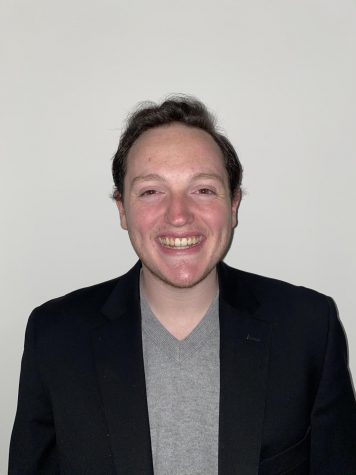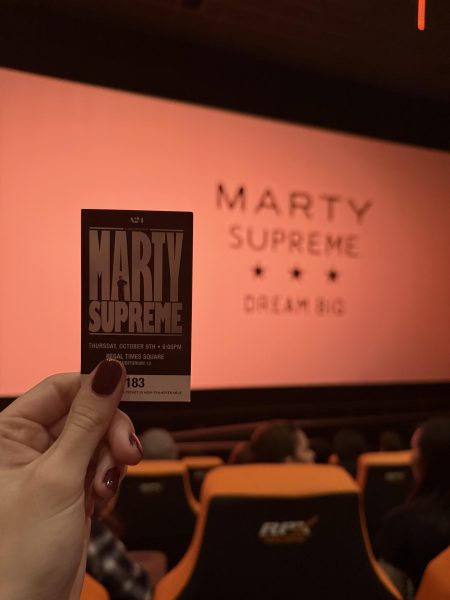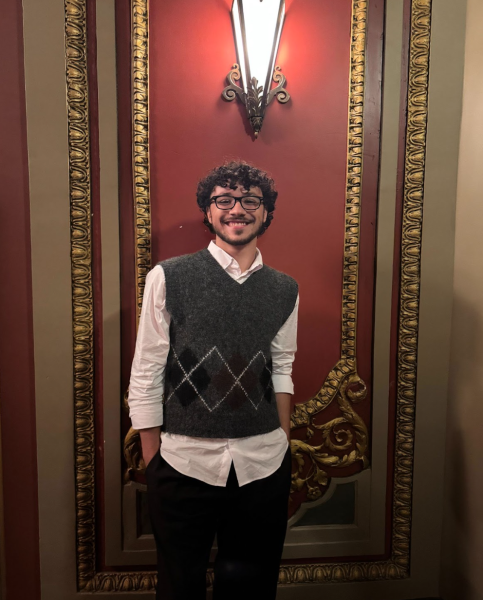Who’s That Kid? It’s Miguel Sutedjo, FCRH ’23!
The Fordham Ram has provided articles in the news section for a long period of time about student-conducted research, highlighting in our research column different students across the Fordham community that are following their passions and curiosities to discover new questions and find new answers.
Hardly ever, however, is this research done in the arts and explores the meanings and implications behind the arts and where it comes from. That is, except for Miguel Sutedjo, FCRH ’23, a sophomore double majoring in Music and International Political Economy with a minor in Mandarin.
Sutedjo is a well-trained pianist, having taken classical piano lessons from the young age of three. He has played in an assortment of different jazz ensembles on campus and recently served as Assistant Music Director for the Mimes and Mummers’ hybrid production of “Spamalot!” He is also an accomplished singer, having performed in the Mimes’ virtual performance of “Spring Awakening” last semester (he serves as the Business Manager for the club as well) and singing bass for the acapella group The Ramblers and doing arrangements for the group like one of Kanye West and Bon Iver’s “Lost in the Woods.” All of this is also done in addition to taking evening classes at Julliard to continue to improve his playing and musicianship skills.
He also commutes an hour to and from campus each day from Paramus, New Jersey. It’s a busy life he leads indeed, and recently, Sutedjo decided to take on even more.
Sutedjo took his musical ventures, something he has devoted his life to at this point, to a new level and explore music, not only from a more academic perspective but also from the perspective of his own heritage.
In his own words, Sutedjo is “performing a musical and cultural investigation into jazz created by Asian/Asian-Americans under the guidance of Dr. Nathan Lincoln-DeCusatis of the Music Department.”
Sutedjo himself is Asian-American (Indonesian-American to be exact) and, of course, has a love for jazz music and the creative minds behind its most outstanding innovations. All of that makes him the perfect person to delve deep into the proportions of this project.
“[I am] analyzing three pieces,” Sutedjo explained. “‘Bali’ by Indonesian pianist Joey Alexander, ‘Fishing song of the east china sea’ by Chinese-American saxophonist Fred Ho and ‘Minamata’ by Japanese-American bandleader/pianist Toshiko Akiyoshi. [The goal is to specifically] analyze how each piece draws from both American and traditional Asian cultural soundscapes and influences.”
Believe it or not, there is actually more to discuss on this topic than one would expect, and what is available to study on the topic includes a broad scope of different musical journeys and experimentations.
“Jazz is often categorized as a quintessentially American art form,” Sutedjo said, his respect for and innate curiosity about the music itself shining brightly through his words. “However, jazz developed as a Black mode of expression through the incorporation of Black cultural musical idioms such as swing and blues. After realizing the separate, restrictive, yet overlapping relationships between ‘Black’ and ‘American’ art forms, I am curious as a first-generation Indonesian-American jazz pianist how Asian/Asian-American jazz artists have combined styles of jazz and other ‘Asian’ sounds in their music.”
And there are few things Sutedjo loves more than new odd musical universes.
The process itself first involved a literal transcribing of the actual pieces that he was studying.
“Because there is no publicly accessible sheet music, I first had to transcribe the tune to inspect the melody, harmony, form, instrumentation, articulations, dynamics, etc.”
This is a process that most people who have not played jazz and studied different musicians’ particular tendencies would find an incredibly odd task that is tedious and incredibly overly meticulous. But Sutedjo has said that this was the part of his entire project that he was most looking forward to and really enjoyed doing.
What comes next is putting all of this work done with the ear and sense of rhythm into something that is academically cohesive. That means a paper on his findings, specifically connecting the music created by Asian-American jazz musicians and its use of, particularly “Asian” sounds.
At the end of the semester, Sutedjo will have all of this work, the transcribing of the music and the academic findings of his research, culminating in a performance by him of the work that he has studied. For Sutedjo, there are few better ways for him to display for the academic world the things that he has learned throughout this unique, interesting and musical process.
Of course, every student at Fordham who conducts academic research of any kind cannot do so without the supervision of a professor, advisor or faculty member of some kind, and in the case of Sutedjo, he credits much of the progress he has been able to make in his research to his advisor for the project, Dr. Nathan Lincoln-DeCusatis.
Lincoln-DeCusatis (or Dr. DeCusatis, as his students affectionately call him), is an Associate Professor of Music at Fordham, who teaches an array of different music courses at the university, ranging from the core curriculum elective of Introduction to Music History to major-specific courses like Jazz Arranging and Composition. As a jazz musician with a background and training in classical piano himself, Lincoln-Decusatis became the perfect guide for Stuedjo in this particular endeavor.
This project was a hefty one to take on in what is already a very busy life that Sutedjo leads, but, as he explains, it is all part of the joys of living a full, human life.
“As much of my hectic life is fueled by my passions for the creative and performing arts, the number one thing that has kept me going is finding joy in the present,” Sutedjo explains. “We can try to seek our happiness from accomplishing the next big thing, but if you cannot enjoy the simple pleasures of life in front of you, who is to say you’ll be satisfied once you reach those lofty goals? Wave hello to a stranger! Dance in the rain! Laugh with your friends! Smile at the sunset! By finding happiness in those small moments, I am able to live my life as crazy, rich and full as I do.”
That fullness with which Sutedjo approaches life, which likely led him to music and the performing arts in the first place, not only made him the perfect conductor of this research but also the perfect ambassador to the world of the effect that these mediums can have on us.

Dylan Balsamo is a junior at Fordham College at Rose Hill, double majoring in film & television and music, or, as he likes to call it, majoring in...












































































































































































































